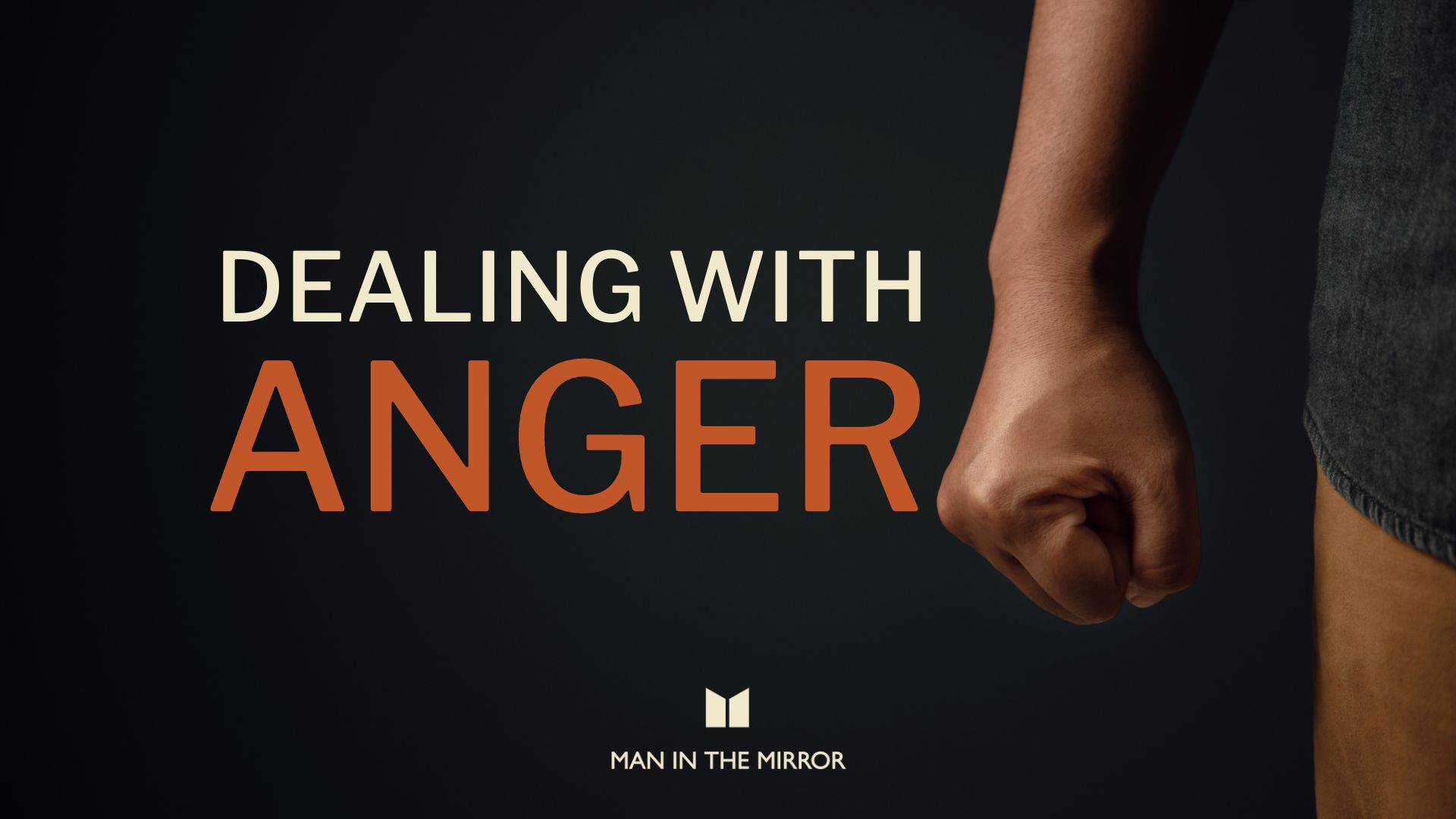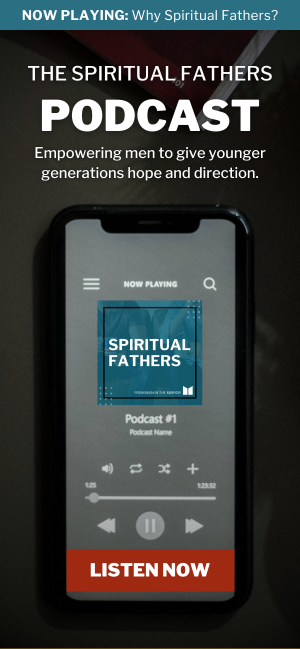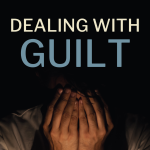Dealing With Anger
We often hear that men lack emotion. In our years of experience working with men, nothing could be farther from the truth. There ARE, however, things we can do to be emotionally healthier, and they are intricately connected to dealing with anger.

By Ryan Reeves
Senior Editor
Jacksonville, Florida
Make no mistake. Men feel emotions.
Go to any football game. Men shout with joy at a victory in the championship, they yell in anger at the referees for a missed call, and they occasionally shed a tear when their team loses an important game. In those moments, no one could say that men repress their emotions.
Make no mistake. Men feel emotions.Click To TweetCloser to home, men feel joy and happiness without a problem. If their child performs well in a competition or their relationship with their wife is fulfilling, men are happy, and they easily show it.
But there are certain kinds of emotions that men are less comfortable with. The difficulty comes with harder emotions that require vulnerability. In some cases, we have cultivated a macho sense that certain emotions are a sign of weakness.
The Problem of Anger in Men
One of the most common issues for men is the problem of anger. Even men who think they are generally calm and placid struggle with the internal forces of anger.
A few things need to be said about the physiology of anger. In a sense, anger is hardwired into our bodies. Many forms of anger are a natural response to our situation—for example, a parent’s anger when they see someone hurting their child. Others are more a manifestation of stress—swearing in traffic when we are late, reacting with sarcasm when we are tired, and even having a case of the “Mondays” at the start of the week.
But is anger an issue for men more so than women? The answer is surprisingly, no. And, yes.
Study after study have shown that men and women experience anger internally at the same rate and with the same intensity.[1] Men and women are motivated by anger in the same ways and often with the same results—fighting, broken relationships, intensified language.
What is different is that women are better at containing their anger when they experience it. The old stereotype is true: women can suppress, channel, or stem their rage while men have trouble controlling their immediate reaction to anger.[2]
So, it would be more accurate to say that men deal with anger in unique ways compared to women. The issue is that men need to learn to control the mechanics of anger—so that they can better control their outward reaction.
Learning to control these moments of anger will sweeten our lives in countless ways.
Dealing With Anger
One of the most important factors in dealing with anger is taking note of where it comes from. The old belief is that anger is a primary emotion—that some of us are “hotheads” and naturally prone to anger. Or that anger is a good basic feeling that must be allowed to run free.
The truth is that anger is a secondary emotion, not a primary one. One does not begin angry but rather experiences one of the other basic emotions first.
For example, a man may find it hard to process that he feels sad and lonely, so those emotions fester and eventually grow into anger. The root of the issue is that he feels sad. But as he wrestles with his sadness, his anger grows and masks the primary emotion.
In other words, we need to work better at identifying our underlying emotions: sadness, fear, pain, loneliness, grief, and other negative feelings. Men are often bad at discussing or even acknowledging these emotions. A man is far more willing to admit that he is angry.
The truth is that anger is a secondary emotion, not a primary one.Click To TweetThere are times when anger is appropriate and needs to be felt on its own. When someone experiences injustice or has been wronged, then anger is the natural, correct response. Similarly, if someone experiences the loss of a loved one, anger is a normal stage in the grief process.
But usually, anger is a mask for deeper feelings. To be a man who deals with anger, we must be strong enough to admit when these other feelings are present. It is better to say, “I am sad… and that makes me frustrated” than to simply say, “I am angry.”
An Exercise for Dealing With Anger
When dealing with anger in your life, big or small, you can often get to the root by asking yourself a series of questions. This routine helps you reframe the problem.
1) Explain what happened.
- What happened today that impacted your emotions more strongly than what you’d encounter normally?
- Who was involved?
- What factors provoked this?
2) Reframe the emotion.
- Did you react badly in your anger?
- Were your feelings justified even if your behavior wasn’t?
- Were there any deeper emotions driving the anger from the start?
3) Look forward.
- Where do you need to make amends for your behavior?
- Once you make amends, how will you express your emotions better?
- What will it take for you to feel better?
Dealing With Anger Together
We know instinctively the truth of this verse: “Human anger does not produce the righteousness that God desires” (James 1:20). We’ve all sinned in our anger and wished we could go back and respond differently.
In the end, there is no simple cure, but it starts with letting the gospel permeate our hearts. We need to experience this grace and forgiveness first before we can know how to forgive others, overlook an offense, or turn the other cheek.
One final thing that helps us relieve the pain: a connection with other men.
Perhaps one of the problems for men in dealing with anger is that too many of them have no one else to share their struggles with. They have no one to talk with about their issues. And this is especially true when it comes to uncontrolled anger, since men are often allowed to ignore their angry patterns without feeling a burden or responsibility to deal with the underlying emotions.
But the Scriptures implore us to deal with them head on: “What causes fights and quarrels among you? Don’t they come from your desires that battle within you?” (James 4:1).
Men, we need each other. We need to talk about our anger, but also about our sadness, disappointment, loneliness, and the wide range of other emotions we experience.
THE BIG IDEA: If we want to deal with anger, we must be willing to identify, discuss, and process our emotions with men we trust.
As we desire to live vibrant lives in Christ, a critical step is building relationships with a spiritual father and brothers in Christ so that we can have these conversations. Only then will we experience better spiritual, emotional, and relational health.
[1] https://www.theguardian.com/lifeandstyle/2019/may/12/science-of-anger-gender-age-personality (accessed 10/31/22)
[2] https://www.sciencedaily.com/releases/2000/01/000131075609.htm (accessed 10/31/22)
♦♦♦







